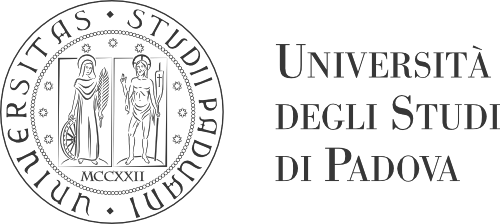Second Level Degree in Mathematics
Jump second level menu- Courses
- Timetable
- Exams
- Individual study program
- Student seminars
- Thesis
- Thesis Archive
- Graduation dates
- Contacts
INTRODUCTION TO PARTIAL DIFFERENTIAL EQUATIONS - 8 CFU
Teacher
Francesco Rossi
Scheduled Period
I Year - 1 Semester | 30/09/2019 - 18/01/2020
Hours: 64 (32 esercitazione, 32 lezione)
Prerequisites
Differential and integral calculus.
Elementary theory of ordinary differential equations.
Basic theory of complex analysis (functions of complex variables, holomorphic and analytic functions).
Target skills and knowledge
Basic notions of the theory of linear partial differential equations. It's a fundamental course suggested to students with interests both in pure and in applied mathematics, and in particular to students with a curriculum in analysis.
Examination methods
The exam consists of a final oral examination on the topics treated in class. There will be both theoretical questions and the discussion of some exercise to solve.
Assessment criteria
The evaluation criteria will be the following:
- coherence and rigor in the exposure of statements and theorems
- thoroughness and adherence to the topics of discussion
- ability to use the acquired knowledge to solve problems and exercises.
Course contents
Didactic plan:
- First order PDEs: transport equation with constant coefficients, conservation laws (classical and weak solutions, Rankine-Hugoniot conditions, Riemann problem).
- Wave equation: existence of solutions, D'alembert formnula, method of spherical means, Duhamel's principle, uniqueness, finite speed of propagation.
- Laplace equation: fundamental solution, harmonic functions and main properties, mean value formulas, Liouville's Theorem, Harnack's inequality, maximum principle. Poisson equation. Green's function and Poisson's representation formula of solutions. Basic notions of the theory of distributions.
Weak solutions of Laplace equations on bounded domains are harmonic functions.
- Heat equation: fundamental solution, existence of solutions for the Cauchy problem and representation formula. Uniqueness and stability of solutions. Mean value formulas, maximum principle, Hopf's maximum principle.
Planned learning activities and teaching methods
The methodology of teaching used will be the classical taught lesson (with tablet).
Additional notes about suggested reading
Textbooks (and optional supplementary readings)
- Salsa, Sandro, Partial differential equations in actionfrom modelling to theorySandro Salsa, Cham [etc.], Springer, 2015.
- L.C. Evans, Partial Differential Equations, 2nd edition, Providence, Rhode Island, American Mathematical Society, 2010.
- W. A. Strauss, Partial Differential Equations. An Introduction, New York, Wiley, 1992.

